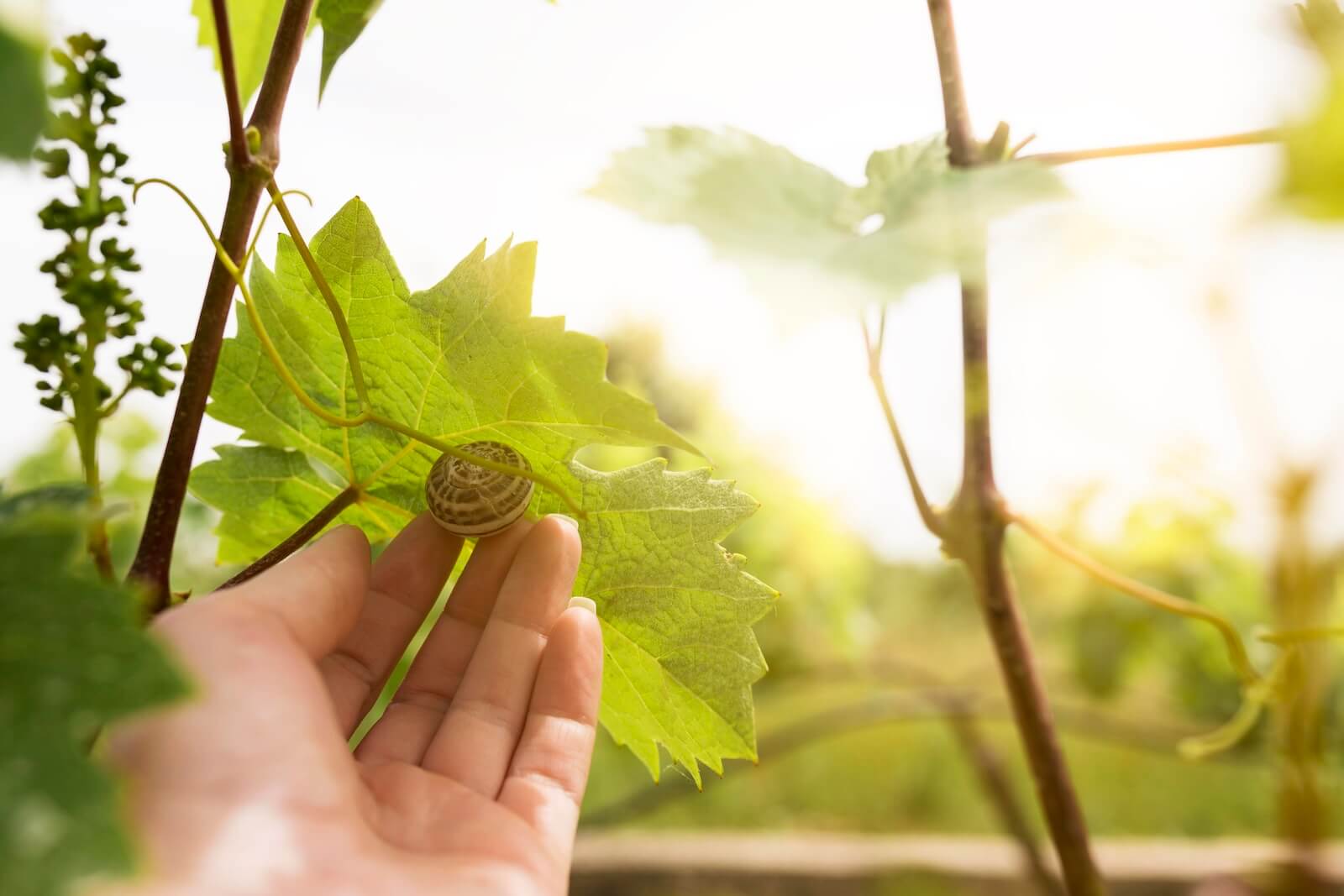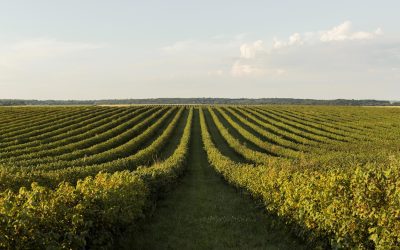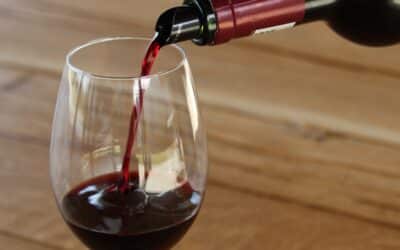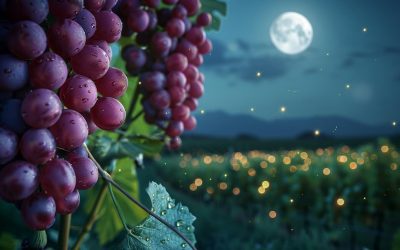Imagine yourself, on a summer evening, sharing a glass of wine on a sun-drenched terrace. What if this wine, beyond its aromas, carried a promise? The promise of living soil, a preserved vineyard, an agricultural practice respectful of the planet and our health. Welcome to the world of organic wine.
Increasingly popular, organic wine continues to gain ground in our glasses. But what truly lies behind this green and reassuring label? Between environmental commitment, technical constraints, and the pleasure of authentic taste, let’s explore a world where wine is rooted in eco-responsible production.
What if drinking a glass of wine became a conscious act?
What is Organic Wine? A Meaningful Definition
Since 2012, European regulations have rigorously governed organic viticulture and the winemaking of organic-certified wines. Specifically, an organic wine must meet strict specifications covering its entire production:
In the Vineyard:
- No trace of pesticides or synthetic chemicals;
- Exclusive use of natural treatments such as sulfur, copper, or plant extracts;
- Soil enrichment through organic compost;
- Respect for biodiversity through the installation of hedges, nesting boxes, cover crops, etc.
In the Cellar:
- Grapes 100% from organic farming;
- Natural winemaking techniques, with limited oenological additives;
- Limited sulfites, and sometimes absent;
- Priority to indigenous yeasts, true imprints of the terroir.
Organic Conversion: a Path Fraught with Pitfalls… and Hope
Becoming an organic winegrower isn’t just about changing practices. It’s about rethinking an entire philosophy of cultivation. And it begins with a three-year organic conversion period, during which the producer adheres to organic standards… without yet being able to benefit from the label.
During this period, the risks are numerous:
- Yield drop due to the cessation of conventional treatments;
- Increased monitoring against diseases;
- Need for more labor for manual harvesting or mechanical weeding.
But the reward is commensurate: organic certification, issued after regular controls, is a guarantee of seriousness, traceability, and consumer trust.
Aromas Truer than Nature
One of the major attractions of organic wine is its gustatory quality. Enthusiasts often speak of an authentic taste, of wines that are more “vibrant”, with a better expression of the terroir.
Why? Because living soil, not saturated with chemical fertilizers, allows for better nourishment of the vine. Result: grape varieties that fully express their character, franker aromas, a marked typicity. And when the approach is taken further to biodynamic wine or natural wine, even more unique profiles are obtained, sometimes unsettling, but always vibrant.
If wine, consumed in moderation, can be beneficial for the heart, an organic wine potentially is even more so.
Here’s why:
- Less or no pesticide residues;
- Limited sulfites, reducing the risk of allergies or headaches;
- Rich in antioxidants (polyphenols, resveratrol), naturally present in grapes.
A gesture for oneself, but also for the planet. Because each bottle of organic wine also means less groundwater pollution, more preservation of natural resources, and a reduced environmental impact.
The Constraints of a Demanding Commitment

You don’t make organic wine to save time. Organic viticulture means:
- More presence in the vineyard;
- Weather feared like never before (downy mildew, powdery mildew…);
- Higher production costs, with lower yields.
Not to mention the jungle of organic labels: AB, Eurofeuille, Demeter, Biodyvin… Each certification has its specificities, its additional requirements, especially in biodynamics.
And yet, despite these challenges, more and more estates are making the leap towards eco-responsible production, driven by growing demand.
Bordeaux, a Prestigious Terroir… but a Challenging Climate for Organic
When organic wine is mentioned, Bordeaux doesn’t always come to mind. And for good reason: the region, one of the most famous in the world, faces particularly complex climatic conditions for organic viticulture.
The almost constant humidity, mild springs followed by “stormy summers, are the ideal cocktail for the development of downy mildew and”powdery mildew. Two dreaded fungal diseases that, in conventional agriculture, are effectively treated with synthetic chemicals.
But in organic farming, winegrowers can only rely on natural substances such as:
- sulfur;
- copper, whose use is strictly limited by regulations.
The slightest prolonged rainy spell can therefore jeopardize an entire harvest, making yields very uncertain.
In Bordeaux, land is expensive. Every cultivated hectare must “produce”, sometimes at the expense of risk-taking. Organic conversion, with its high costs and climatic uncertainties, can therefore appear as a dangerous gamble for some winegrowers.
Furthermore, the heterogeneity of estates (grand châteaux vs. small domains) makes a collective conversion dynamic difficult.
But the situation is changing! More and more Bordeaux estates, particularly in Côtes-de-Bourg, Fronsac, or Graves, are undergoing organic conversion or adopting biodynamic practices. The success of labels like Biodyvin or Demeter, and the growing demand for wines with low environmental impact, are pushing Bordeaux to reinvent its viticulture.
This is a historic turning point for a region long perceived as conservative.
Organic, but not without Consequences: when Soils also get Depleted…
It would be tempting to believe that organic viticulture, by banning synthetic chemicals, automatically guarantees soil health. But the reality is more complex.
In organic farming, herbicides are replaced by mechanical weeding: inter-row cultivators, blades, rotary harrows. The problem? These tools, used multiple times during the season (sometimes 6 to 10 times a year), compartmentalize the soil, dry it out, destroy certain microfauna, and cause compaction of the surface horizons.
- Result: a soil that is less aerated, less alive, sometimes even erosive, especially if it is already poor or worked on a slope.
- In Bordeaux, on clay soils, this tendency is accentuated: poorly controlled mechanical work can create a crust, blocking water infiltration and impoverishing microbial flora.
Copper, authorized in organic farming as a natural fungicide (especially against downy mildew), is another sensitive topic. Although it comes from the mineral world, it is toxic to earthworms, beneficial fungi, and accumulates in the soil without degrading.
Fortunately, many winegrowers aware of these effects are working to renew their approach:
- Sowing green manures to cover and nourish the soils;
- Regular organic compost to revive biological activity;
- Fewer mechanical passes, replaced by mulching, or eco-grazing (sheep in the vineyards);
- Close observation of biological indicators of living soil: earthworms, crumbly structure, mycorrhizae…
In short, being organic is not enough: one must practice intelligent organic farming, by reconciling biodiversity, microbiology, and sobriety of practices. This is where biodynamics, and agroecological approaches, can offer complementary solutions.
The Organic Wine Market in Full Effervescence
The organic wine market is constantly expanding. In France, nearly 20% of vineyards are cultivated organically or in conversion, and the trend is strengthening with consumer expectations:
- Sensitive to environmental impact;
- In search of healthier products;
- Curious to discover wines that tell a story.
Some countries like Germany, Sweden, or Japan are also great lovers of French organic wine, proof that this approach shines far beyond our borders.
Organic wine embodies a sincere desire to produce differently: without synthetic pesticides, respecting nature, the consumer, and the terroir. It appeals with its promise of authentic taste, its traceability, and its reduced environmental impact. And for many winegrowers, it is a courageous commitment, often costly and demanding, that deserves to be commended.
But it is not a miracle solution. Organic farming, especially in challenging regions like Bordeaux, still faces real agronomic constraints: unstable climate, soil fatigue, controversial use of copper, sometimes heavy mechanization… So many challenges that call for caution, a constant search for balance, and sometimes for exploring other approaches.
Alternatives such as biodynamics, agroforestry, or reasoned and regenerative approaches can also contribute to more sustainable viticulture, without being confined to a single label.






